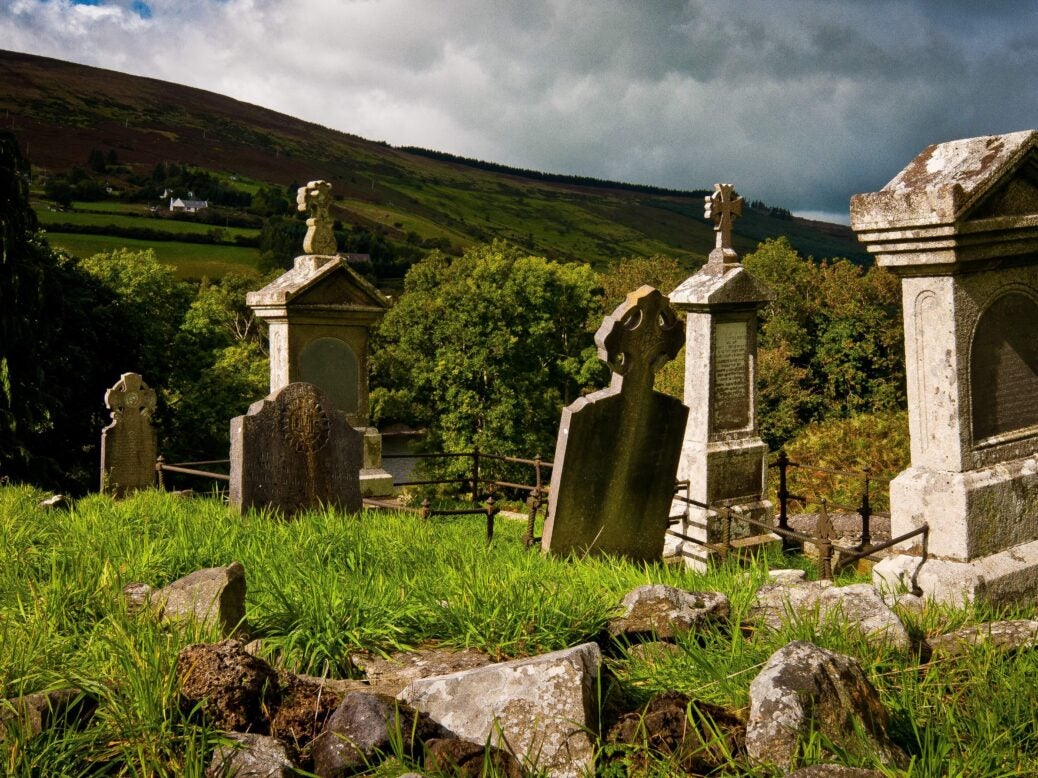
John FitzGerald outlines the curious case of Anstey v Mundle, in which a grieving family fights over the deceased’s final resting place.
As far back as 1716, the English playwright Christopher Bullock realised that ‘’Tis impossible to be sure of anything but death and taxes’. Sadly, this remains the case 300 years later – though arguably taxes have become more certain and even more burdensome.
Despite the certainty of death, many people do not wish to plan for this eventuality. Few would consider making a will and deciding on the details of their funeral the most exciting of activities. After all, you are planning an event that presupposes your own demise. A recent case, however, highlights the familial strife that can be caused by failure to plan for the inevitable.
In an unusual case in the High Court, Mr Justice Klein was faced with deciding who should be responsible for the burial of George Carty in Anstey v Mundle.
Carty died in January 2016 and was survived by his three daughters, Valerie, Stephanie and Sonia, as well as his niece, Cynthia (who was also his attorney under a Lasting Power of Attorney).
Following Carty’s death, a dispute arose between the girls. Valerie and Stephanie argued that it was Carty’s wish to be buried in the UK, while Sonia and Cynthia argued that he wished to be buried in his old country of Jamaica.
Having been born in Jamaica in 1935, he moved to the UK in the 1960s and, while he retained a property in Jamaica, his last visit there was in 1998 for his sister’s funeral. There was a suggestion at the trial that Carty feared for his safety should he return to Jamaica, but this was not proven.
The judge considered that the court had an inherent jurisdiction to determine who is responsible for the burial and set out four important factors:
- the deceased’s wishes;
- the reasonable requirements and wishes of the grieving family;
- the location with which the deceased was most closely connected;
- that the body be disposed of with all proper respect and decency and if possible, without delay.
The wishes of Carty were described as a ‘particularly weighty factor’, but were not immediately obvious. He had in fact made a will which expressed his wish to be buried in Jamaica next to his mother, but the circumstances of the making of the will were so ‘unusual’ that the judge attached ‘only a little weight’ to the wishes outlined in the will.
Greater weight was given to the ‘live’ evidence provided by Carty’s family members and friends. Fortunately for Sonia and Cynthia, there was sufficient extrinsic evidence for the judge to order that the deceased should indeed be buried in Jamaica.
It is difficult to predict whether the wishes expressed in the will, were it drawn up formally at a firm of solicitors and after careful consideration, would have trumped all other considerations, but it is almost certain that it would have been afforded greater weight. The case highlights the importance of making careful and formal plans for one’s death.
It is worth noting that the unusual circumstances behind the execution of the will have also resulted in a separate claim concerning its validity, and the family members will now be put to the trouble and expense of a separate piece of litigation.
At the end of his judgment, Klein stated ‘a lot of things have been said during the course of this litigation which cannot be unsaid’ and he urged Carty’s family now to come together. Preparing for one’s death may be an unpalatable affair, but failure to do so may mean that the emotional (and financial) fallout for those left behind, and already grieving, is even worse.
John FitzGerald is a solicitor at Gordon Dadds






